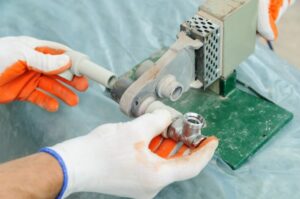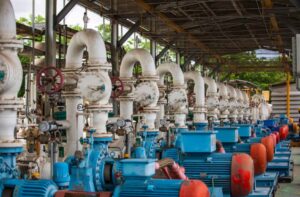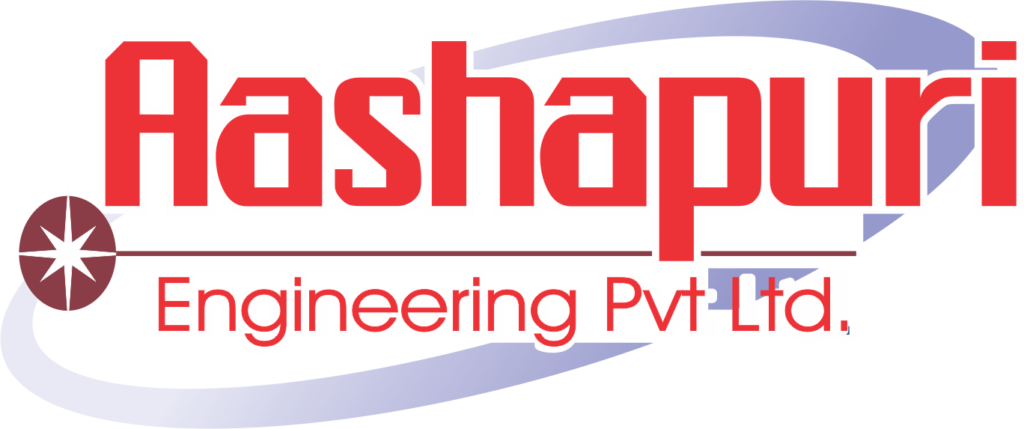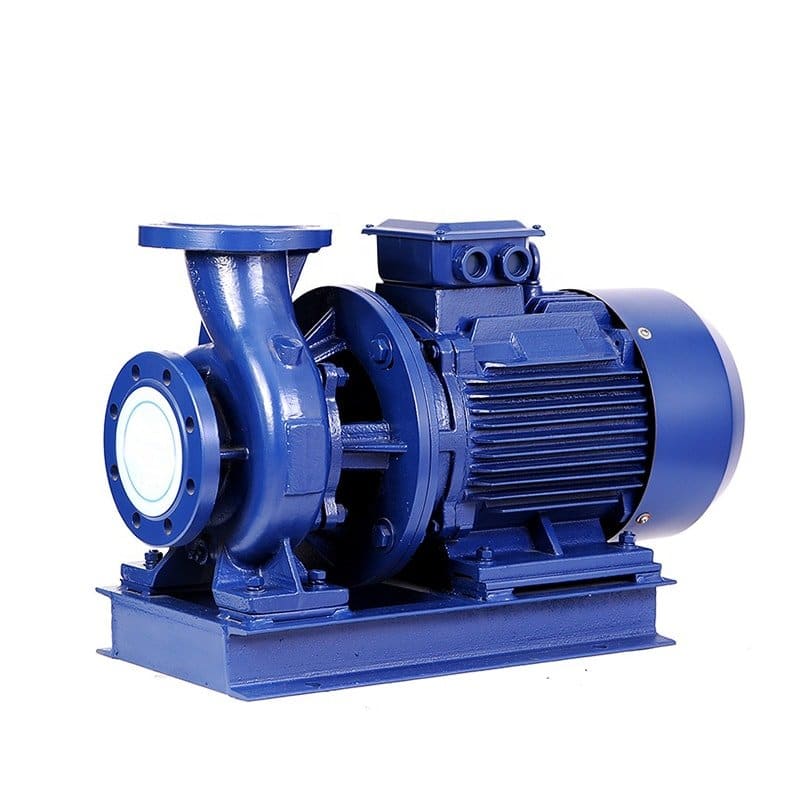The efficiency of any centrifugal pump doesn’t rest solely on the impeller, casing, or motor. There are small, seemingly minor parts that carry a lot of responsibility—one of them is the centrifugal pump plug. Over time, this component has gained more importance as industries evolve and demand precision engineering. Especially in high-performance sectors like chemical processing, pharmaceuticals, water treatment, and oil refineries, a faulty or ill-fitted pump plug can disrupt entire operations.
India’s industrial infrastructure has grown rapidly, and with that, the demand for high-quality, reliable pump parts has surged. Selecting the right centrifugal pump plug means you are investing not just in a part but in the stability of your entire system. A brand like Aashapuri Engineering Pvt. Ltd., a renowned centrifugal pump plug manufacturer in India, offers an excellent example of how engineering expertise, experience, and precision come together to deliver components that endure.
This blog outlines ten essential things to know before purchasing a centrifugal pump plug in India—from material considerations to manufacturer credibility. Each point is explained with context and practical insight to help you make a confident, informed decision.

1. Understand the Role of the Pump Plug
The centrifugal pump plug serves a core function in maintaining the structural integrity of the pump’s casing. It is typically used to seal off sections of the pump that are not required in a particular configuration or application. More than just a sealing component, it ensures pressure consistency, prevents leakage, and maintains flow accuracy.
Even a small flaw in a pump plug’s shape, size, or material can result in inefficiencies, high maintenance frequency, or even system failure. This makes understanding its role and ensuring it matches your system’s design all the more important.
2. Not All Plugs Fit All Pumps
You may have a general idea of the part you need, but when it comes to centrifugal pump plugs, precision is non-negotiable. Different pumps, even those from the same manufacturer, may have subtle differences in casing architecture. Whether it is the threading, taper, or locking mechanism, one-size-fits-all is not an option.
Before making a purchase, cross-reference your system’s specifications with the plug design. Speak with your supplier, request CAD drawings or models if needed, and make sure it will integrate perfectly with your setup.
3. Material Compatibility with Process Fluids
The operating environment of your pump greatly influences the kind of material you should choose for the plug. Pumps used in highly acidic environments require plugs made of materials resistant to chemical corrosion—typically stainless steel grades like SS316 or duplex variants.
In water treatment or agricultural systems, brass or bronze may suffice, while food-grade pumps need sanitary, non-toxic materials. A reliable centrifugal pump parts manufacturer in India, like Aashapuri Engineering Pvt. Ltd., will offer options in various materials, each suited to different industrial environments.
4. Manufacturing Techniques Make All the Difference
How a pump plug is manufactured says a lot about how well it will perform. The best manufacturers use CNC machining to maintain ultra-fine tolerances and ensure consistent dimensions. Heat treatment processes, such as annealing or hardening, improve the plug’s resistance to fatigue and pressure-induced stress.
Manufacturing is not just about shaping the plug—it is about creating a reliable, stress-resistant component that performs under demanding conditions. Companies like Aashapuri Engineering Pvt. Ltd. invest in modern facilities and skilled technicians to meet these goals.
5. Pressure and Temperature Ratings
One of the most overlooked aspects of pump plug selection is checking its pressure and temperature rating. Even if the plug looks perfect and fits well, it must withstand the actual operational stresses of your system.
High-temperature liquids or pressurized fluid streams put mechanical strain on the pump plug. Always check the product’s pressure rating and the maximum allowable temperature. A mismatch here could result in failures that are not only expensive but also dangerous.
6. Installation Matters
The pump plug’s effectiveness doesn’t just depend on its build—it also depends on how it is installed. A plug that’s too tight might crack under stress, while a loose-fitting one could leak. Some plugs require thread sealants or specific torque specifications to function optimally.
Choosing a pump plug from a manufacturer that includes detailed installation guidelines is always advisable. It ensures that your maintenance team handles it properly, avoiding mishaps caused by incorrect fitting.
7. Look for Testing and Quality Verification
Reputed manufacturers do not just ship parts—they test them. Dimensional inspection, pressure testing, and sometimes even metallurgical analysis are part of the quality process. These checks ensure the plug will perform as expected, even under stress.
Aashapuri Engineering Pvt Ltd, for example, incorporates multi-level inspections at every stage of the manufacturing cycle. The result is a high-quality, dependable plug that reduces downtime and extends pump life.
8. Availability of Customization
In today’s diverse industrial landscape, standard parts may not always be sufficient. Custom dimensions, threads, or sealing features are sometimes necessary to match legacy systems or unique applications. A manufacturer with in-house design capabilities can adapt existing designs or create something entirely new for your requirements.
This adaptability is one of the hallmarks of Aashapuri Engineering Pvt Ltd, where engineering is not just about fulfilling an order—it is about solving a real-world problem.
9. Documentation and Traceability
In regulated industries like pharmaceuticals, food processing, and water management, documentation is more than a formality—it is a requirement. When purchasing centrifugal pump plugs, having access to product data sheets, test certificates, and material traceability reports is critical.
This transparency also simplifies future maintenance, audits, and certifications. Manufacturers who provide this level of support understand the operational realities faced by plant engineers and procurement heads.
10. Manufacturer Reliability and Support
Your relationship with a supplier doesn’t end after the purchase. Sometimes, assistance is required post-installation—whether it is clarification on material behavior, installation help, or guidance during a breakdown.
Choose a company that values long-term relationships over one-time sales. Aashapuri Engineering Pvt Ltd has built its reputation through years of consistent product quality, but equally through its ability to support clients when needed. That’s the kind of trust you want when purchasing a component that protects your system.

Industry-Wise Applicability
Centrifugal pump plugs find relevance across a wide variety of sectors. In the oil and gas industry, they play a vital role in high-pressure applications where the tiniest leak could lead to major losses. In pharmaceuticals, the hygiene and finish of the plug can impact entire production cycles. Even in agriculture and water treatment, where systems run for long durations, these small parts ensure minimal maintenance and stable performance.
Choosing a pump plug from a respected centrifugal pump parts manufacturer in India ensures that regardless of your industry, you are investing in equipment that supports efficiency, not setbacks.
Sustainable Engineering with Aashapuri Engineering Pvt Ltd
Aashapuri Engineering Pvt Ltd has not just kept pace with global standards—it has also prioritized eco-conscious and sustainable practices. Their focus on quality raw materials, optimized production lines, and waste minimization contributes to longer-lasting parts, reduced downtime, and less frequent replacements.
Future-Proofing Your System
As industries embrace automation, digital monitoring, and predictive maintenance, component consistency becomes more important than ever. A centrifugal pump plug may be small, but its precision ensures smooth operation across these evolving platforms. Ensuring you use high-quality components like those from Aashapuri Engineering Pvt Ltd helps make your system future-ready.
Whether you are scaling operations, modifying existing pumps, or integrating smart monitoring systems, it pays to start with a reliable mechanical foundation. Every part matters.
Summary
Buying a centrifugal pump plug is a technical decision with significant implications. It is not just a matter of filling a hole—it is about sealing performance, efficiency, and reliability into your pumping system. From material choices and manufacturing precision to after-sales support and documentation, every factor plays a role in determining how well your pump operates.
By partnering with an experienced centrifugal pump plug manufacturer in India like Aashapuri Engineering Pvt. Ltd., you are not just making a purchase—you are choosing long-term dependability, custom solutions, and expert support.
Elevate your pump system’s reliability and efficiency—choose Aashapuri Engineering Pvt. Ltd., your trusted centrifugal pump parts manufacturer in India. Whether you need a standard plug or a customized solution built for unique applications, their engineering expertise and proven track record will help you operate with confidence. Explore their solutions today and invest in performance that lasts.

